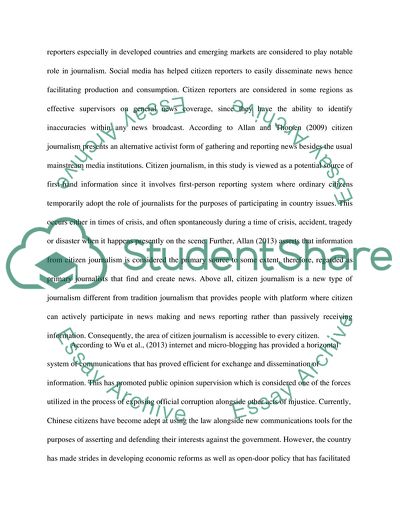Cite this document
(Role of Citizen Journalism in Combating Corruption in China Literature review Example | Topics and Well Written Essays - 5000 words, n.d.)
Role of Citizen Journalism in Combating Corruption in China Literature review Example | Topics and Well Written Essays - 5000 words. https://studentshare.org/journalism-communication/1855740-what-roles-dose-citizen-journalism-play-in-combating-corruptions-in-china
Role of Citizen Journalism in Combating Corruption in China Literature review Example | Topics and Well Written Essays - 5000 words. https://studentshare.org/journalism-communication/1855740-what-roles-dose-citizen-journalism-play-in-combating-corruptions-in-china
(Role of Citizen Journalism in Combating Corruption in China Literature Review Example | Topics and Well Written Essays - 5000 Words)
Role of Citizen Journalism in Combating Corruption in China Literature Review Example | Topics and Well Written Essays - 5000 Words. https://studentshare.org/journalism-communication/1855740-what-roles-dose-citizen-journalism-play-in-combating-corruptions-in-china.
Role of Citizen Journalism in Combating Corruption in China Literature Review Example | Topics and Well Written Essays - 5000 Words. https://studentshare.org/journalism-communication/1855740-what-roles-dose-citizen-journalism-play-in-combating-corruptions-in-china.
“Role of Citizen Journalism in Combating Corruption in China Literature Review Example | Topics and Well Written Essays - 5000 Words”. https://studentshare.org/journalism-communication/1855740-what-roles-dose-citizen-journalism-play-in-combating-corruptions-in-china.


